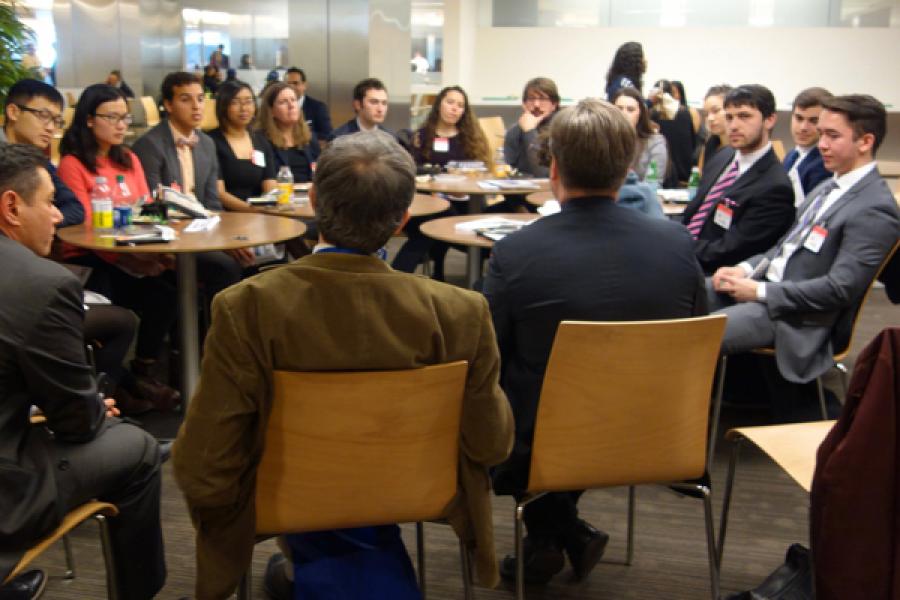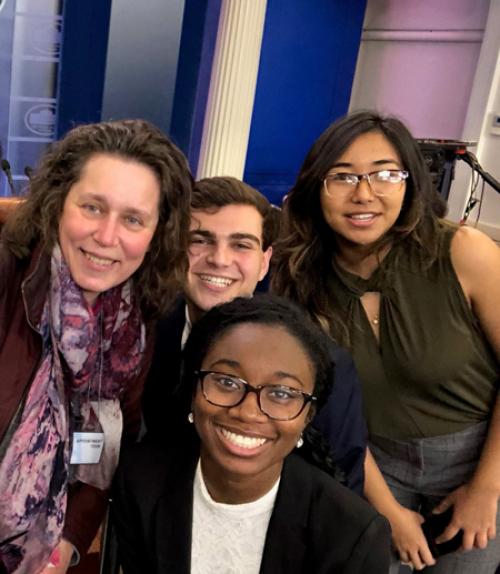Students in the Cornell In Washington program had the chance to learn about how science is incorporated – or not – into the policymaking process during a March 23 visit to the U.S. Department of State in Washington, D.C.
Christine Leuenberger, a senior lecturer in the Department of Science & Technology studies and a former science fellow at the U.S. State Department, received a grant from Engaged Cornell to take students to meet some of her former State Department contacts, to listen to briefings related to climate change and other pressing issues and to explore future opportunities for collaboration between students, faculty and policymakers.
As part of their visit, students were briefed by Daniel Stoian, deputy executive director of the Bureau of South and Central Asia at the State Department, who is giving them policy-relevant problems to work on as part of their final projects for S&TS 4451 Making Science Policy: The Real World this semester. At the end of the semester, students will brief the bureau on the results of their research, Leuenberger said.
“In a time of extreme budget frugality, the U.S. Department of State does not have the resources to stand-up an internal think tank or team of data scientists as we would like,” Stoian said in a letter supporting the project. “We simply would not have the capabilities Dr. Leuenberger and her team offer were it not for her initiative to bring students to Washington D.C.”
Leuenberger served as an American Association of Science (AAAS) Science & Technology Policy Fellow at the U.S. Department of State and at U.S. Agency for International Development (USAID) from 2016-2017. Upon her return to Cornell, she designed two new courses on the undergraduate and on the graduate level, "Making Science Policy: The Real World,” the one she is currently teaching in Washington, and "Science and Policy-Making: The Two Cultures."
“These engaged courses enable students to better understand the structural constraints, concrete practices and relevant policy questions that policy-makers deal with on a day-by-day basis,” Leuenberger said. “They also enable policy-makers to network with academics and students in order to facilitate future collaborations.”
Leuenberger said through the courses she hopes students will learn how to effectively link research with policy.
“This level of engagement will hopefully increase understanding on both sides about how to most productively work across the boundaries of our academic and policy communities,” she said.





